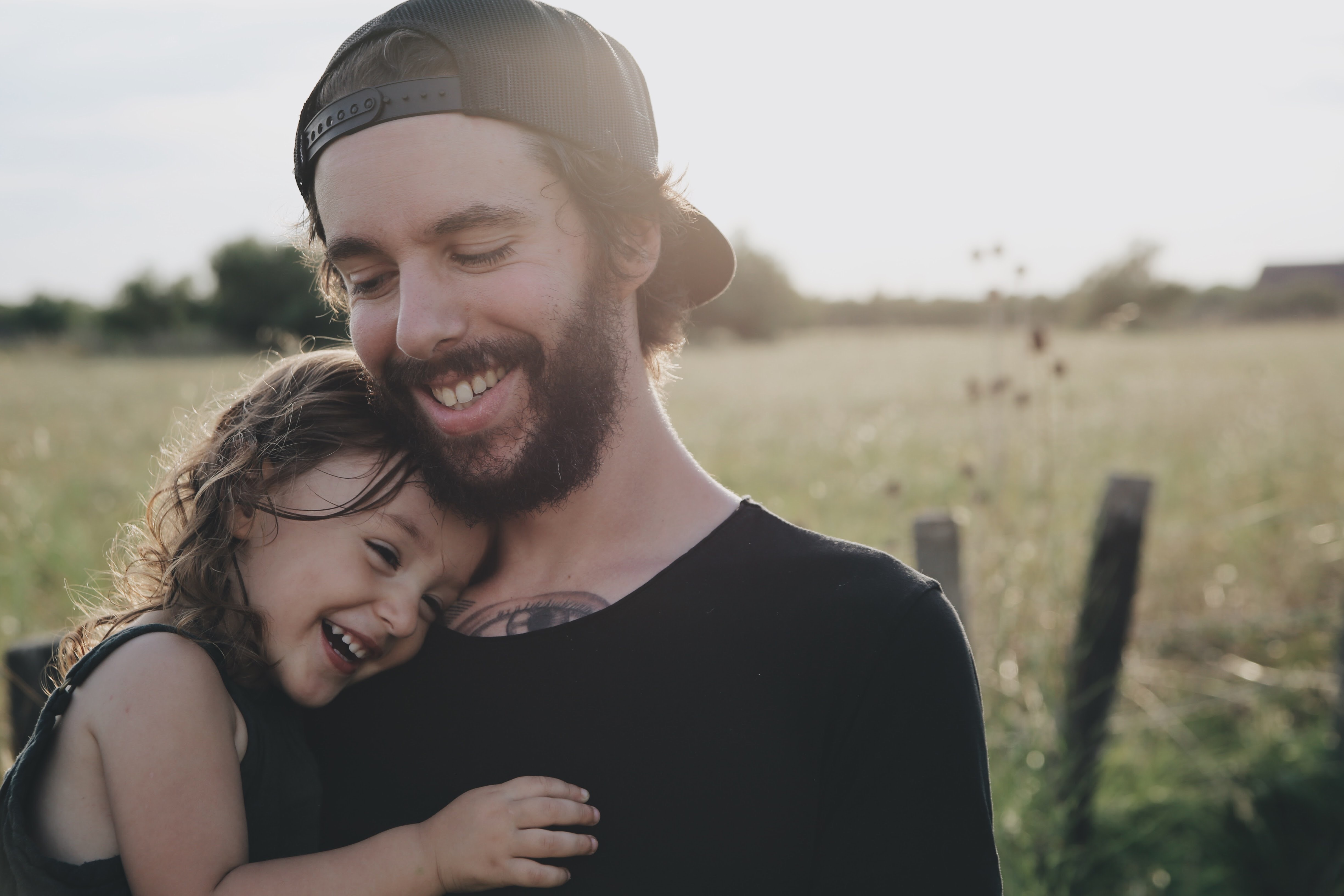I have grown to be so close to my birth father that I consider him one of my very best friends. But that relationship has taken years, communication, and love. When thinking about how to have a healthy birth father relationship, there are a lot of things to consider.
My relationship with my birth father has had its ups and downs and has had an enormous impact from outside influences. The biggest impact we dealt with is the fact that, due to miscommunication on the part of the agency itself, my birth father was cut out of my life completely when I was just five years old. It wouldn’t be until I was nearly fifteen, a decade later, that I was finally able to have contact with him again.
When he reached out to me after all those years, that was such a special experience. I knew that he loved me and had thought about me consistently over the course of my life. He never would have stopped communication with me on his own. It devastated him to have the ties with me severed by someone else all those years ago.
I will continue to talk about the things that I’ve learned in my own story later in this article but first, I want to talk about things I’ve learned and observed from other people’s adoption stories involving birth fathers.
My older sister has a very different adoption story than my own. She felt the importance of establishing her own character and personality alone and organically before she felt comfortable reaching out to find her birth parents. My sister wanted to grow up with our little family and worried about the overwhelming prospect of more figures in her life.
She took things all in her own time and refused to listen to pressure about what they thought she should do. She had friends that thought she should reach out earlier and do more than she did when she made contact.
My parents were incredibly supportive of her. They took things at her pace, never pressuring or questioning her timing. When she felt ready to meet her birth mother in 2015, we went as a family. It was important to her for her birth mom to see her with the family that had been chosen to be hers.
She nurtured the relationship with her birth mother as well as with her birth mothers’ children for the next several years. She had no interest in reaching out to her birth father at the time because she worried about how it may impact her ever-growing relationship with her birth mom.
My sister knew her birth father’s name, where he lived, and a brief and outdated opinion of his character from her birth mom. We had grown up in Washington state but my sister, Katelyn, moved to Utah for school. Coincidentally, her university was only an hour away from her birth father’s hometown and she interned just blocks away from his work. Just last year, 2020, she accepted a job in Texas. She decided a few months before she moved with her little family that she finally felt ready to meet him.
After some social media research, she found her biological half-brother. She decided to reach out to him to inquire about her birth father. Shortly after, she contacted her birth father who had anxiously anticipated contact from her for her entire life.
My sister, her husband, and their 18-month-old drove the hour to have a reunion he had hoped he would be able to experience. His life has been a constant series of hardships and having Katelyn back in his life was a blessing to him.
He immediately fell in love with my nephew and shares his own love of cars by finding model car toys for the little boy. He still calls and texts my sister now that she lives in Texas and hopes to make it out for a visit in the near future.
As I said earlier, I consider my birth father to be one of my very best friends. He encourages me to do things that I don’t think I can because he sees the potential in me that I can’t sometimes. He has rooted for me in my darkest moments and been by my side for some of the best and brightest days.
But like all good relationships, it has taken a lot of work and communication. I assume that level of work and dedication will need to continue if we want to keep our successful, healthy relationship.
Because of the nature of the relationship, I think there is a lot of room for self-consciousness and overanalyzing. Most of the bumps in the road for our dynamic stem from words taken out of context, inaccurately analyzed actions, and more of the same. There have been countless missteps on my part that I own up to. I know that as I was figuring out my role in his family, I wasn’t as gracious as I could have been.
I had to learn to have open communication, which is one of the most important things to learn. Keep your communication as open as is comfortable for you. If you feel hurt by something someone said, don’t feel guilty expressing your feelings and explaining why something hurt the way it did.
I also had to learn to let go of my worries of screwing things up. I tensed up because I worried so much that I would say something offensive or otherwise cross a line. Ironically, that closed-off behavior made the tensions higher. I would be quieter than I usually am, not as goofy and nowhere near as engaged.
My birth father and his wife are incredibly observant human beings and would get nervous by my standoffish behavior. They worried that I was bored, offended, or otherwise feeling a need to disengage. More often than not, that wasn’t the case. I was simply taking the position of a quiet observer.
They tended to ask me if I felt okay and the anticipation of getting asked triggered something I related to social anxiety. I would be excited to see everyone there, but also incredibly anxious because I worried I was being analyzed. I also could feel the presence of elephants in the room from times that I misstepped, regardless of the time that had passed.
The biggest factor that changed things for me was getting married. My husband entered the picture two years ago and we’ve been married for most of that time. He is very protective of me and very aware of situations that are stressful for me. He was the person that pointed out to me that my relationship with my best friend of 10ish years was actually really unhealthy for me and that my best friend was not a good person to be around. When he recognized the stress I started to have before visits with my birth father and his family, he didn’t hesitate to point it out.
On a specific day early last year, I hadn’t been clear in my wording of something and it was taken largely out of context. Feelings were hurt and I felt terrible. I talked to my husband and vented about how it felt like they viewed me as a vindictive person with some kind of vendetta. I never intentionally hurt people, so feeling like they saw me as such shook me to my core.
At this point in my life, I realized that I was married and had my own little family to nurture. If something or someone doesn’t fill my cup, I have every right to move on and focus on the things that make me feel edified.
I wrote a long text explaining my side of things and how I wanted to have their family in my life but if I continually felt like the bad guy in this narrative, then I needed to step away. I truly felt sad at the thought, but almost a sense of peace of walking away because I felt I could truly do nothing quite right in their space.
This text spurred on a long conversation with a lot of tears on my part and my birth father’s. We both expressed our hurts and haunts and what we both needed out of our relationship. Neither of us wanted to cut things off, but we knew something needed to change.
I stopped the submissive and quiet act around them and they noticed that difference in me. I stopped analyzing my own actions so much and in the long run, that ended up in fewer screw-ups and quit worrying I was going to offend everybody. If they wanted a relationship with me, it would be the unabridged version. The version that talks about the hard things.
My birth father and his wife have heard all the nitty-gritty details I think they should know about, ranging anywhere from updates about my (negative) tumor biopsy and miscarriage last year, my current (very early) pregnancy, my favorite flavor of Oreo (Chocolate Peanut Butter Pie), favorite musician (Taylor Swift.), etc.
That day that I admitted to myself that I could walk away if I needed to was the day that our relationship took a step towards the healthy, strong relationship we have now.
I think the most important thing about developing a healthy birth father relationship is recognizing that the adoptee and their needs have to come first. I am incredibly grateful for my adoption plan and the way that things have panned out over the years. But at the end of the day, I do still believe that the biggest decision of my entire life was made without my consent.
I wouldn’t change the way my life has played out for a second, but it has been crucial for me to realize that my needs and feelings have to come first. I am an extreme empath with a tendency to let myself be walked all over but when I do that, I am not being my true self. That doesn’t allow people to know me as my true self. A relationship built on shaky ground is not going to stand.
Now that I advocate for myself (with my advocate/husband who has my back through everything backing me up), my relationship with my birth father is the strongest it has ever been.
If you are hoping to establish a long-lasting, healthy relationship between an adoptee and their birth father, it’s important that the needs of the adoptee are met. Sometimes the adoptee wants to be open and candid about things and if the birth father is in a place that he can be there for them, sharing thoughts, opinions, and concerns can be an incredible bonding experience. If an adoptee is more reserved and closed off, the birth father should give them the time and space that they need to feel completely comfortable. Sometimes that takes a couple of days or weeks and if so, great! If that process takes months or years, the birth father should remain patient and vigilant in building that relationship. Not giving up, but also not pressuring for more than the adoptee is comfortable with.
My sister’s decision to wait was really important for her. It allowed her the room she wanted to grow how she wanted within our family and then again the development she wanted with her own little family. Since being in contact with her birth father, she still holds the reins on contact. If something is too much for her, she is able to express that openly.
With my birth father, we are still figuring each other out. I reunited with him in person three and a half years ago and I am grateful for everything he and I have been through and learned together. Since I value my own needs than I used to, I can relax and our relationship has flourished.
I hope that as adoptees and birth fathers work together to build healthy relationships, an example may be set and those healthy birth father relationships become more common.




